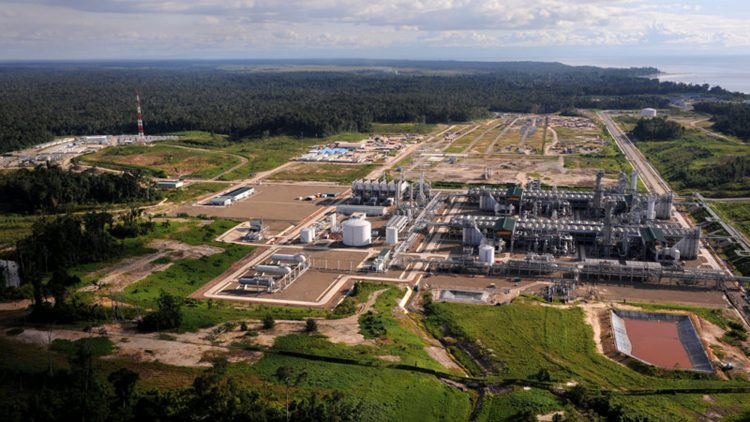
BP and its Tangguh LNG partners today confirmed that Indonesian oil and gas regulator SKK Migas has approved the plan of development (POD) for a key carbon capture utilisation and storage (CCUS) project at the Tangguh LNG export complex. Significantly, BP claims this will make Tangguh “one of the lowest greenhouse gas (GHG) intensity liquefied natural gas (LNG) plants in the world.”
This new development is estimated to enable a potential additional recovery of 1.3 trillion cubic feet (Tcf) of gas, from both the Ubadari field and Vorwata carbon capture utilisation and storage (CCUS) project, BP said in a statement. Front-end engineering and design (FFED) work is expected to begin in mid-2022 and start-up is targeted in 2026. Although, BP and its partners will first have to take a final investment decision (FID) and secure additional approvals from SKK Migas relating to technical aspects of the project.
Crucially, BP will need to implement carbon capture and storage (CCS) to expand output at the Tangguh project to meet its emissions reduction targets under its 2050 net-zero pledge, which also has intermediate targets set between 2020 and 2040. BP’s new upstream investments in Indonesia, will not be possible without associated CCS projects to keep its emissions profiles in check.
However, CCS technology remains in the early stages of development globally and is yet to be proven on a large scale. Indeed, Chevron is receiving heavy flak and potential fines for failing to meet emissions reduction targets at its troubled CCS scheme that forms a crucial element of the Gorgon LNG export project in Australia. Its partners include Shell and ExxonMobil.
Fast-tracked project
BP’s Ubadari field development is being fast-tracked as a result of a successful appraisal programme and is planned to be produced via installations connected by offshore pipeline to the Tangguh LNG facilities.
The Vorwata CCUS development will see about 25 million tonnes of carbon dioxide (CO2) injected back into the Vorwata reservoir to reduce venting of the majority of produced CO2 and provide incremental gas production through enhanced gas recovery (EGR), said BP.
The CO2 injection will remove up to 90% of the reservoir-associated CO2, which is currently vented and represents nearly half of the Tangguh LNG emissions. This would make Tangguh one of the lowest greenhouse gas (GHG) intensity LNG plants in the world, claimed BP.
“These developments demonstrate how Tangguh continues to be a strategic fit in BP’s portfolio. Ubadari is a clear example of a value-focused gas development. And the Vorwata CCUS-EGR project will be a significant milestone for BP, with the potential to make a material contribution to our aims to reduce operational emissions,” said BP.
“To have reached this stage, from just a concept a few years ago, is amazing. It is a concrete result from a truly great partnership between BP, its partners, and the Government of Indonesia,” said Dev Sanyal, BP executive vice president for gas & low carbon energy.
The front-end engineering and design (FEED) work for the Ubadari field development and Vorwata CCUS will start in mid-2022 subject to Tangguh partners’ and further SKK Migas approval, with a potential estimated project start-up in 2026 subsequent to a final investment decision (FID), said BP.
“The approval of this plan of development is a vote of confidence in the Tangguh project and also shows BP’s continued commitment to invest in Indonesia. We are proud to be able to play a major part in meeting the country’s gas production aspirations while also significantly reducing emissions. This is in line with both BP’s aims and the Indonesian government’s effort to meet its Nationally Determined Contribution (NDC) commitment under the Paris Agreement,” added BP.
“We thank the Ministry of Energy and Mineral Resources, SKK Migas and Directorate of Oil and Gas, as well as all our Tangguh partners, for the continuous support and collaboration which allowed the timely approval of this plan of development”, said Nader Zaki, BP group senior vice president for Asia Pacific.
BP, as the operator of Tangguh LNG, works under a production sharing contract (PSC) that is supervised by SKK Migas, as the representative of the government. Tangguh is currently the largest gas producing field in the country with 1.4 billion cubic feet (Bcf) per day of gas production through two LNG trains and will reach 2.1 Bcf per day once Train 3, currently under construction, is online. Tangguh expansion project including the construction of Train 3 has been declared a National Strategic Project by the Government of Indonesia.

